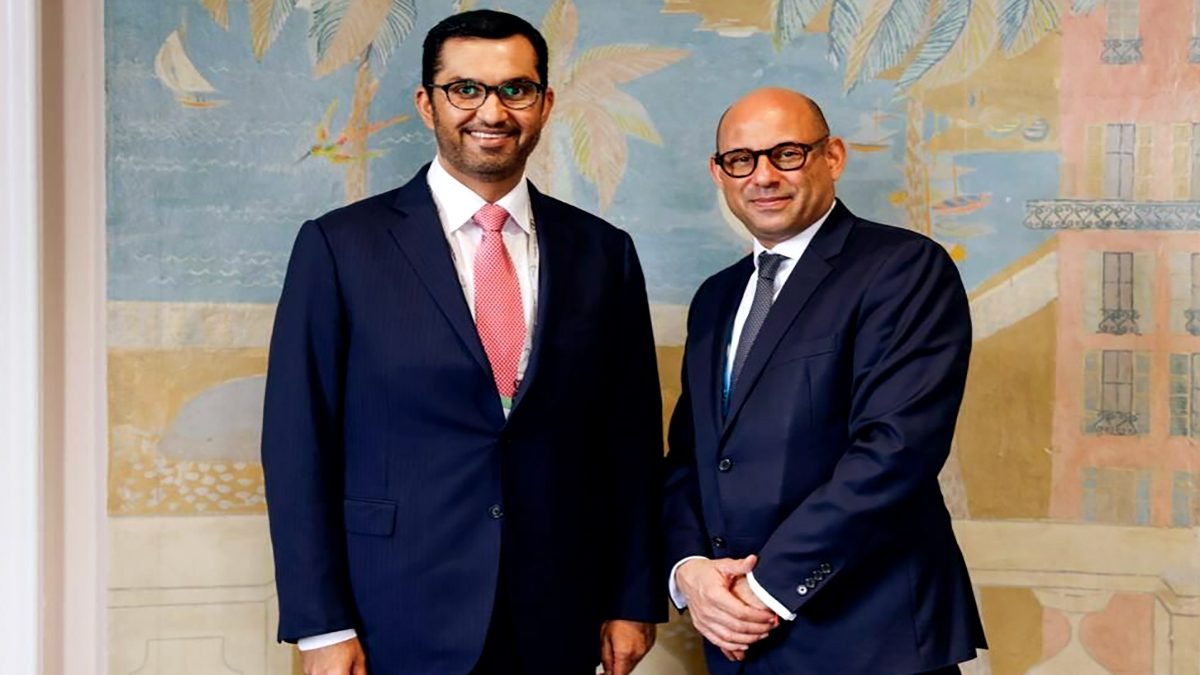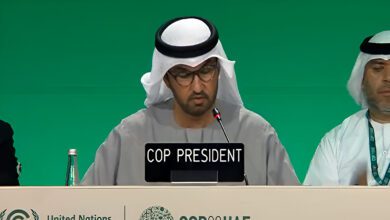In a resolute call to action, Dr Sultan Al-Jaber, COP28 President-Designate, and Simon Stiell, Executive Secretary of the United Nations Framework Convention on Climate Change (UNFCCC), have jointly appealed to G20 nations to embrace a leadership role in climate change mitigation and adaptation. With a mere 125 days remaining until COP28, the climate conference this year, the leaders issued a powerful joint statement on the sidelines of the G20 ministerial meeting in Chennai, urging decisive and urgent action to address the global climate crisis.
“The science demands a strong mitigation outcome at COP28 that drives a significant reduction in emissions and builds on the progress of previous COPs, and we call on the G20 to lead the way on the basis of both science and equity and lay the path to a strong and credible outcome that provides developing countries with the basis to undertake a just transition,” the leaders asserted in the statement.
Central to their appeal is the need to accelerate the phase-down of all fossil fuels responsibly and pave the way for an energy system free of unabated fossil fuels by the middle of this century. The leaders stressed the importance of tripling global renewable energy capacity and doubling energy efficiency improvements across sectors by 2030 to achieve these ambitious goals.
Despite discussions at the G20 Energy Ministerial meeting addressing energy transition and aligning current pathways with the Paris Goals, the outcome failed to provide a sufficiently clear signal for transforming global energy systems, scaling up renewable and clean energy sources, and responsibly phasing down fossil fuels.
“It is our hope that any progress achieved by the G20 drives decisively a strong outcome at COP28 under the Global Stocktake and capitalizes on the Just Transition Work Programme established at COP27 to ensure that this transition is fair, leaves no one behind, and supports the broad development challenges faced by developing countries in launching this transition,” the statement emphasized.
Additionally, the leaders urged G20 nations to prioritize the definition of a Global Goal on Adaptation (GGA) and operationalize the loss and damage fund and funding arrangements at an equal level. They underlined the importance of placing the human face of climate change at the core of all decisions. The need for urgent doubling of adaptation finance was stressed, particularly to support those on the frontline of climate change, including the least developed countries and small island developing states.
The leaders acknowledged that delivering on the 2030 agenda relies on making climate finance more available, affordable, and accessible to developing countries. They urged for transformation in climate finance arrangements to work at the necessary scale, improve the system, and facilitate unprecedented levels of private finance mobilization.
“Climate finance arrangements will need to be transformed to deliver at the necessary scale, to work better as a system and to support private finance mobilization at unprecedented levels,” the leaders stated.
The joint statement concluded with a passionate call for G20 nations to urgently prioritize revised commitments on Nationally Determined Contributions (NDCs), National Adaptation Plans (NAPs), and climate finance, including contributions to the ambitious replenishment of the Green Climate Fund (GCF) to align with the Paris Goals.
“We must leave Chennai on the right path and with a clear signal that the political will to tackle the climate crisis and launch a new era of development is within our grasp because it is only a short path to COP28. Every meeting counts, every outcome must bring us closer. The world needs its leaders to unite, act, and deliver, and that must start with the G20,” the leaders emphatically asserted.













